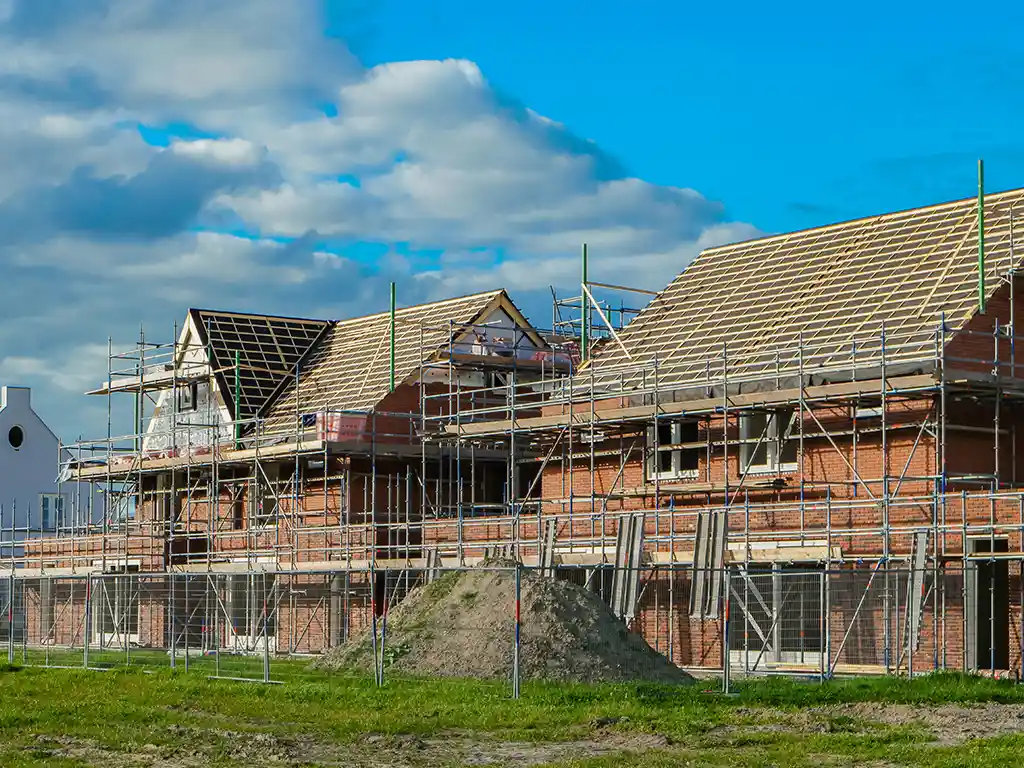Introduction to Choosing Materials
Picking the right materials for a construction project can be quite challenging, almost like putting together a puzzle with many different pieces. It’s not simply a matter of selecting what’s available on the market; it’s about making well-informed choices that will influence the durability, cost, and overall success of the building. The materials you choose at the start can have a lasting impact on the quality and performance of the final structure. This is where having someone with experience really comes into play, as they can provide valuable insights from the initial planning stages all the way through to completion.
Experienced professionals bring a wealth of knowledge and practical understanding that can make a huge difference. They know the nuances of different materials, how they perform under various conditions, and what works best for specific parts of a project. This kind of understanding is not something you can easily pick up from a book or a course; it’s gained through years of hands-on experience and dealing with real-world challenges.
For instance, a seasoned builder would know that while timber might be ideal for certain aesthetic and structural elements, it may not be the best choice for areas exposed to high moisture. Likewise, they’d understand how to balance the use of materials to stay within budget while not compromising on quality. This intricate knowledge helps in making decisions that ensure the longevity and integrity of the construction, ultimately saving time and money in the long run.
Grasping Material Attributes
Understanding the characteristics of construction materials is key to making informed decisions on any building project. Each material has its own set of features that make it more or less suitable for certain tasks. For example, concrete’s ability to retain heat makes it great for thermal mass, while steel’s unmatched tensile strength makes it a go-to for structural frameworks. These specific attributes mean that one material might be perfect in one situation but completely wrong in another.
Experience plays a crucial role in fully appreciating these characteristics. An experienced professional knows the ins and outs of various materials, from how they react under different weather conditions to how they interact with other building components. This knowledge isn’t something you can gain overnight; it comes from years of working on diverse projects and seeing firsthand what works and what doesn’t.
Imagine trying to decide between different types of insulation. A seasoned builder would know the difference between fibreglass, foam, and wool insulation—not just in terms of cost but also in performance and suitability for specific parts of a building. They’d understand which material offers the best thermal resistance, which is easiest to install, and which is most environmentally friendly.
By combining theoretical knowledge with hands-on experience, professionals can make better choices about which materials to use and where. This helps ensure that each part of the project performs optimally, leading to a more durable and efficient building.
Experience’s Impact on Material Quality
Having years under their belt, seasoned professionals have a knack for recognising quality materials. They’ve built relationships with dependable suppliers, so they know exactly where to get the best stuff. This kind of network means they can quickly spot substandard materials that could jeopardise a project. Their well-trained eye ensures that only top-quality materials make it to the construction site, which is crucial for the durability and safety of the final structure.
Their experience also means they’ve seen what happens when poor-quality materials are used. They’ve witnessed the headaches and extra costs that come with replacing faulty components. This real-world understanding drives them to be meticulous in their selection process, ensuring everything meets the necessary standards. It’s not just about avoiding issues; it’s about knowing how to choose materials that complement each other, boosting the overall performance of the building.
Additionally, experienced pros often have insider knowledge about the latest advancements in material technology. They stay updated on new products and techniques that can improve quality and efficiency. This keeps them ahead of the game, allowing them to make informed choices that benefit the project from start to finish. All in all, their seasoned judgement is invaluable when it comes to ensuring material quality in construction.
Cost-Effectiveness and Productivity
Making a building project cost-effective while maintaining quality is always a bit of a balancing act. That’s where experienced professionals shine. They have a knack for knowing where you can cut costs without sacrificing the integrity of the build. For instance, they might suggest using a less expensive material in non-critical areas or recommend suppliers that offer better prices for bulk purchases. Their background means they can foresee potential issues and provide cost-effective solutions, saving you from pricey mistakes down the line.
Efficiency is another area where their experience proves invaluable. Seasoned builders know how to make the most out of the materials on hand, reducing waste significantly. They’ve likely encountered a variety of construction scenarios, giving them a well-rounded perspective on how to handle materials more effectively. Whether it’s ordering the right amount of supplies or scheduling deliveries to coincide with specific project phases, their expertise helps streamline the process.
Additionally, these professionals often have established relationships with suppliers, allowing them to negotiate better deals and faster delivery times. This can lead to cost savings and ensure that the project stays on schedule. All these factors contribute to a more productive worksite, where resources are used efficiently and projects are completed within budget.
Eco-Friendliness and Progress
Eco-friendly construction is more than just a trend; it’s becoming a necessity as we aim to reduce our carbon footprint. Seasoned builders have the edge when it comes to integrating sustainable materials into projects. Their experience means they are familiar with the latest in material science, which allows them to recommend options that not only meet environmental standards but also perform well over time. For instance, they might suggest using reclaimed wood or recycled metal, which are both sustainable and durable.
These professionals are also adept at balancing eco-friendly choices with project budgets. They know how to source green materials without breaking the bank, and they understand the long-term cost savings that can come from using energy-efficient products. For example, investing in high-quality insulation can reduce heating and cooling costs for years to come.
Another key advantage is their knowledge of eco-friendly certifications and standards. Experienced builders can navigate the often complex requirements to ensure that the project meets all necessary guidelines. This might include understanding the nuances of certifications like LEED or BREEAM, which can be a daunting task for those new to the field.
In essence, having someone with a wealth of experience helps make the shift towards eco-friendly construction smoother and more effective, ensuring that sustainability is built into the very foundation of a project.
Managing Potential Risks
Managing risks when choosing building materials is a big deal. Picking the wrong materials can lead to a host of problems like structural issues, increased upkeep, or even failing to meet regulations. This is why having a seasoned professional is so important. Their years of experience help them spot potential red flags early on, such as materials that might not hold up under specific environmental conditions or those that don’t meet required standards.
These pros have a knack for conducting thorough risk assessments, which means they can weigh the pros and cons of different materials before making a decision. They’ve seen firsthand what can go wrong and have learned how to avoid those pitfalls. For example, they might steer clear of a type of concrete known to crack in freezing temperatures or avoid a supplier with a history of inconsistent quality.
Additionally, they stay updated on building codes and standards, ensuring that all materials used are compliant. This can save you from costly fines and rework down the line. Their expertise acts as a safeguard, helping to keep your project on track and up to scratch.
Closing Thoughts and Future Outlook
Wrapping up, it’s clear that having someone with deep expertise makes all the difference when it comes to picking the right materials for construction projects. These seasoned pros know how to balance quality, cost, and sustainability, making sure everything runs smoothly from start to finish. They help in avoiding costly mistakes and ensure that the building stands the test of time.
As we look ahead, the construction industry is set to see more innovation, especially in sustainable materials and practices. Technologies like 3D printing and smart materials are already changing the game. However, no matter how advanced these technologies become, the value of experienced professionals won’t diminish. Their know-how is essential in adapting to these new methods and ensuring they are implemented effectively.
The push for greener buildings is also likely to grow stronger. With climate change and environmental concerns becoming more pressing, sustainable construction is not just a choice but a necessity. Experienced builders will be at the forefront of this movement, guiding the way with their understanding of both traditional and modern materials.
In short, while new technologies and materials will continue to evolve, the timeless value of experience and expertise will always be a cornerstone of successful construction projects.

